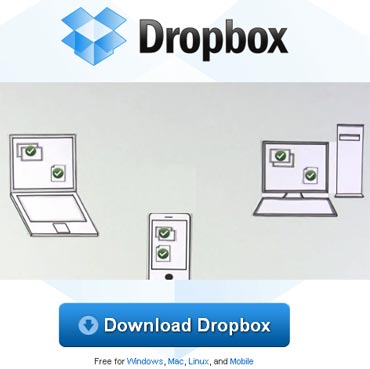Photographs: Rediff Archives Reviews42.com
The benefits of Cloud Computing are innumerable and difficult to ignore. However, the various legal and security issues still need to be wrangled with.
In this day and age of computing, less emphasis is being placed on the power of a PC, tablet and smartphone. Yes, there are advances being made every day but certain bottlenecks in technology prevent the leaps we saw a decade ago. There have been many proposed solutions then for not only overcoming those bottlenecks, but also taking advantage of increased connectivity in today's world. This is in order to leverage existing resources and provide them anywhere, any time.
This forms the basis for Cloud Computing. In a nutshell, Cloud Computing involves using technological resources that are accessible through the Internet but which may not be in the same location as the user. This is possible by various remote servers used by the service in question, to lend their resources for specific functions.
While it may seem relatively new in India, Cloud Computing is quickly gaining acceptance even among the general public. Apple and Google, for instance, are heavily pushing for Cloud Computing around their products.
Inside the Cloud
Cloud Computing is usually referred to as an abstract concept -- to indicate that one's data and computing needs are "up in the cloud". This is a common misconception, since information is stored in locations with the infrastructure and technology necessary to carry out one's functions.
Cloud Computing has seen many significant developments in the past 20 years, and has become especially popular for virtualisation and other services within corporations. Some companies may want to cut down on infrastructure costs and thus tie up with a Cloud service provider to utilise their resources.
The key benefit of Cloud Computing is being able to use the resources from anywhere, irrelevant of one's location and independent of whatever device they may have. Browsing from your smartphone? As long as you have an Internet connection, you can easily stream games, access documents, carry complex calculations all from the palm of your hand. Managing applications is also easy since you don't need to install them on your system.
Cloud Computing is also beneficial for reliability and security. As the data is spread across multiple servers and remote locations, it reduces the risk of losing all of one's data in case disaster strikes. The use of servers also allows for backups and maintenance of security -- although the said security is dependent on regular systems. So if a corporation's security is similar to basic network security that it uses for safeguarding its data, then the Cloud Computing servers will only be as good.
Up in the air: The rise of CLOUD computing
Photographs: Dropbox
Everyday uses of Cloud Computing
There are many kinds of Cloud Computing. The most common kind is where users can store their data "online" and access it from anywhere. The best example would be Apple's Mac OS X, wherein you can store your contacts, Internet browsing history, settings, and files on your desktop, and access the same files on your iPhone, iPad or MacBook.
DropBox uses something similar, wherein one can synchronise documents on their desktop with those online. As long as someone has an account and DropBox installed on their device -- along with an Internet connection -- they can access their files.
Other uses of Cloud Computing involve being able to utilise a large collection of computers to act together as a "supercomputer". This is referred to as Grid Computing, and often used in rendering farms for animating visual effects and CG. Using several devices in unison for a specific effect, such as the Samsung Galaxy S4's Group Play which lets each smartphone in a group act as a separate speaker, is a smaller example of this.
One of the bigger avenues can be seen in Cloud Gaming, which is quickly gaining attention thanks to the release of Sony's PlayStation 4 console.
Cloud Gaming allows one to stream games to one's device and play them directly through one's web browser. It can also be seen on smartphones with services like OnLive that let you play graphically intense titles without the need for powerful hardware. Button presses and responses are dependent on packet exchanges between the client and server.
Reader Invite
Are you a gadget/gaming wizard/afficianado? Would you like to write on gadgets, gaming, the Internet, software technologies, OSs and the works for us? Send us a sample of your writing to gadgetsandgaming@rediffmail.com with the subject as 'I'm a tech wizard/afficianado' and we will get in touch with you.
Up in the air: The rise of CLOUD computing
Photographs: Rediff Archives
When it rains, it pours
For all the benefits that Cloud Computing presents, it has its fair share of disadvantages. Privacy concerns have cropped up, since servers are accessing one's devices intimately and can thus monitor whatever you're doing. When major organizations such as the NSA can monitor one's phone calls by tying up with American service providers, it creates doubts as to whether Cloud Computing will be any safer.
There are also various legal issues to be had, including property rights. Since the data is being stored on another server, there are problems that arise as to who it belongs to. Who owns the data in this case -- the user or the company that is holding the data, and in some cases making it possible in the first place? The recent case against popular online storage site Megaupload is a popular example of users "losing rights" by uploading it. As stated earlier, security of one's data is only as good as the company managing it. Even big names like Apple and Sony have been hacked and the data from iCloud and PSN exposed for the world to see.
The biggest issue of course involves Internet access. While first world countries are making advances with 4G and LTE technology, countries like India still rely on older services like 3G for access. Even high-speed broadband -- which pales in comparison to the United States and UK -- is restricted to most major metros.
Future forecast
The benefits of Cloud Computing are innumerable and difficult to ignore. However, the various legal and security issues still need to be wrangled with. As companies develop their services more intimately and introduce them to a more general public, there will be an incentive to use Cloud Computing on an even larger scale than before. Even if it's just accessing your documents on DropBox or synching your Chrome preferences, there's no denying that life on the Cloud has its perks.
Reader Invite
Are you a gadget/gaming wizard/afficianado? Would you like to write on gadgets, gaming, the Internet, software technologies, OSs and the works for us? Send us a sample of your writing to gadgetsandgaming@rediffmail.com with the subject as 'I'm a tech wizard/afficianado' and we will get in touch with you.





Comment
article